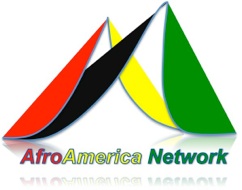The US State Department have rejected the results of the elections in the Democratic Republic of the Congo (DRC). In an open rebuke contained in the December 20, 2011 statement, the US Statement Department says:
“The United States is deeply disappointed by the Democratic Republic of the Congo Supreme Court’s decision to uphold the electoral commission’s provisional results without fully evaluating widespread reports of irregularities. We believe that the management and technical execution of these elections were seriously flawed, lacked transparency and did not measure up to the democratic gains we have seen in recent African elections.”
Thus, the State Department expresses deep disappointment. However, the statement appears hesitant to endorse the win by the opposition, by stating that: “it is still not clear whether the irregularities were sufficient to change the outcome of the election.”
The US State Department has been under pressure to reject Joseph Kabila’s win after the Carter Center said the elections lacked “credibility” and Cardinal Laurent Monsengwo, the Archbishop of Kinshasa, criticized election results saying they “comply with neither truth nor justice.”
On December 20, 2011 a collection of observers, experts, activists and NGO, including Eastern Congo Initiative, Enough Project, Humanity United, International Crisis Group, Open Society Foundations, Anthony W. Gambino, Fellow at Eastern Congo Initiative, Mvemba Phezo Dizolele, Visiting Fellow at Hoover Institution and Jason Stearns, expert on the DRC and former member of UN Panel of Experts on the DRC, signed a critical statement and asked the US State Department to openly reject the elections.
In the statement (see here)
, the signatories ask the US Government to “state clearly that they do not perceive the election results as legitimate and call on President Kabila to delay his inauguration ceremony until steps are taken to address these serious allegations. If the inauguration proceeds as scheduled, the United States and other international missions should consider non-attendance or at a minimum send a lower ranking diplomatic officer instead of the Ambassador.”
Joseph Kabila’s inauguration was widely boycotted by Western and African Governments, with Belgium publicly expressing the reprobation and vowing to isolate Joseph Kabila’s government. The position by the Belgian Government, usually regarded in the West as a diplomatic authority on the DRC, may be the strongest sign yet that Joseph Kabila may face isolation very soon.
Still, despite all the disapprovals and criticisms, the West did not endorse Etienne Thsisekedi the apparent winner of the elections. According to our sources, the West hesitated to support Etienne Thisekedi, because of the serious political and diplomatic mistakes he made before, during and after the elections. He has consistently exhibited divisive politics and has shown that he was unwilling to cooperate with no one.
He has dismissed other opposition candidates, who could have provided him with a decisive win, and allowed him to become the president. But he decided to have none of it and appeared as a stubborn and arrogant old man. Hence, the West was worried that if Etienne Thsisekedi was unwilling to listen to people offering him support during elections, what would happen once he becomes president.
Also, apart from Etienne Tshisekedi, there is no other prominent leader within his UDPS party. Given his advanced age and allegedly with fragile health, if he became an uncompromising president, his sudden disappearance would create a power vacuum, which the West is apprehensive of.
The fact that the West is rejecting Joseph Kabila, while not embracing Etienne Thisekedi may appear puzzling, but logical. In fact, the memory is still fresh where the West supported leaders because those they replaced did not appear acceptable. A few years later, these new leaders had proven to be monsters. That is what may worry the West regarding the Democratic Republic of the Congo (DRC).
Meanwhile, it would not be surprising that other disgruntled candidates may be preparing for some sort of revolution or armed rebellion. The upcoming weeks will determine whether the Congolese people will emulate the Ivory Coast scenario or the Libyan revolution.
©2011 AfroAmerica Network. All Rights Reserved.




Comments on this entry are closed.